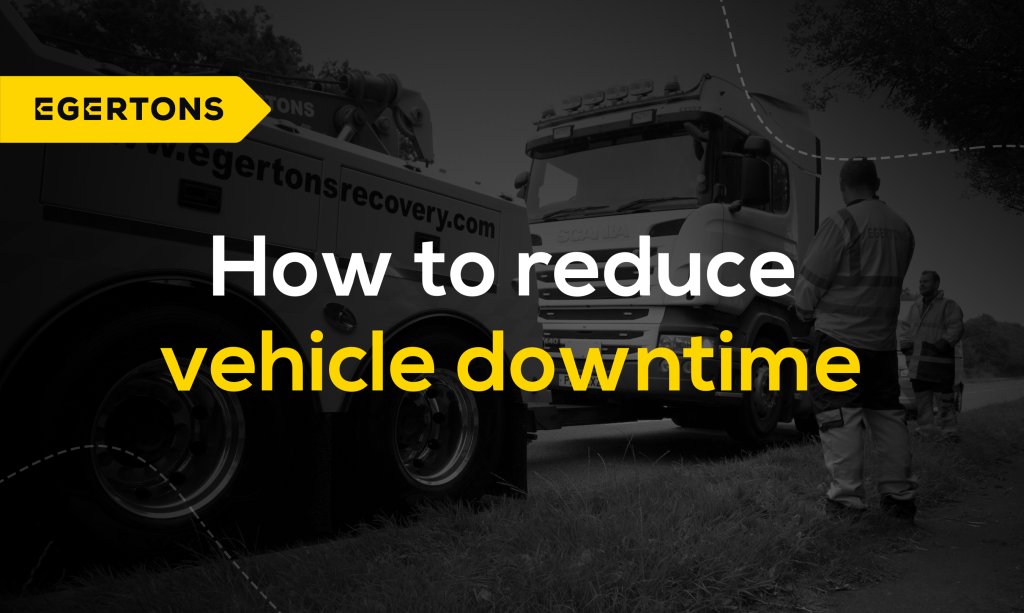For Fleet Managers, the impact of vehicle downtime stretches far beyond the idle hours of just one single vehicle. It affects overall productivity, operational costs, and, ultimately, the bottom line.
Reducing vehicle downtime is not simply a goal for Fleet Managers; it’s a fundamental necessity to ensure the seamless operation of the entire fleet.
Operational efficiency, cost savings, and customer satisfaction depend on the ability to keep vehicles on the road and performing optimally, and Fleet Managers can achieve this by adopting proactive maintenance practices, leveraging technology and establishing effective communication channels.
But what impact does downtime actually have, and how can Fleet Managers avoid it, to keep their vehicles on the road as safely, and as much as possible?
Let’s find out.
Vehicle downtime impacts: operational efficiency
Vehicle downtime directly correlates with operational efficiency, as the more time a vehicle spends off the road, the less productive it becomes.
That’s why for Fleet Managers who are aiming to maximise efficiency, need to minimise downtime as a strategic tactic. The more time they’re on the road, the more deliveries and pick ups can be made, the more miles driven, the more customers are made happy. But if those vehicles are stuck in a garage, broken down or involved in an accident, that can be days’ worth of loss to a business.
Vehicle downtime impacts: cost savings
Downtime quite literally translates to lost revenue and increased operational costs because vehicles generate revenue when they are on the road fulfilling their designated tasks.
Every hour a vehicle sits idle represents a missed opportunity for a Fleet Manager, and so reducing downtime, directly contributes to cost savings and improved profitability.
In other words, the more miles they travel, the more profits the business can generate.
Vehicle downtime impacts: customer satisfaction
As any Fleet Manager will know, consistent and reliable service is the bedrock of customer satisfaction.
When vehicles are consistently available and operational, it enhances the fleet’s ability to meet customer demands promptly, but downtime means that those end customers can be directly impacted and their expectations, experience and overall likelihood of continuing to work with that business, can be heavily impacted if their customer demands are not met.
However, reduced vehicle downtime can have a whole host of positive business implications, and it’s not as tricky as it might seem to achieve them. Starting with…
Proactive maintenance
Adopting a proactive approach to vehicle maintenance by implement regular, scheduled maintenance checks to identify and address potential issues before they escalate, including oil changes, brake inspections, tyre rotations, and other preventive measures, can all help contribute to keeping vehicles in optimal condition and on the road rather than in a workshop for repairs.
Telematics and predictive analytics
Many Fleet Managers choose to leverage telematics and predictive analytics in order to monitor their vehicle health in real-time. These technologies provide insights into the performance of various vehicle components, enabling Fleet Managers to anticipate maintenance needs and address potential issues before they result in downtime.
Driver training programmes
Well-trained drivers contribute significantly to the longevity of fleet vehicles, and many Fleet Managers have implemented driver training programmes in an effort to emphasise the importance of proper vehicle operation, routine checks, and proactive reporting of any issues.
What’s more, educated drivers are more likely to identify potential problems early, reducing the risk of unexpected breakdowns and keep their vehicles on the road for longer.
Comprehensive vehicle inspections
Conducting thorough pre-trip and post-trip inspections encourages drivers to inspect key components such as brakes, tyres, fluids, and lights before hitting the road. These routine inspections can contribute to early detection of issues, and minimise the likelihood of unexpected breakdowns in the future.
Effective communication channels
Establishing clear communication channels between drivers and fleet management is a great tactic to reduce vehicle downtime, especially as it encourages drivers to promptly report any issues they encounter during their trips.
This works as a transparent feedback loop, allowing Fleet Managers to address concerns quickly, preventing minor issues from escalating into major problems.
Strategic vehicle rotation
Something many Fleet Managers will know all too well about the importance of distributing workload strategically amongst their fleet.
Rotating vehicles in a manner that ensures an even distribution of mileage and usage prevents some vehicles from experiencing excessive wear and tear while others remain underutilised, therefore evenly spreading the miles driven and reducing sudden downtime of certain vehicles all at once.
And finally, having an emergency response plan in place
Developing a robust emergency response plan for unforeseen breakdowns includes having access to a reliable roadside assistance service, maintaining spare parts inventory, and having designated repair facilities in various locations to expedite the resolution of unexpected issues.
Your reliable partner, whenever you need us most
Egertons are one of the UK’s leading vehicle rescue and recovery operators, with services stretching from breakdown recovery to specialist assistance, available 24/7/365 service across the country.
But the main reason choose us? Because our fleet of incident response vehicles, range of equipment available on hand and the technology our fleet is equipped with, allows us to deploy the exact right vehicles, first time, helping to keep your vehicle downtime to an absolute minimum and ensure recovery takes place as safely and efficiently as possible.
What’s more, we also hold PAS 43, ISO 9001 and NNHS Sector 17 accreditations, helping to ensure that all our recoveries and repairs are completed to the very highest industry standards.
We’re the preferred vehicle rescue and recovery operator for UK fleets to rely on, no matter what.
In other words, when you need us, we’ll be right here.


